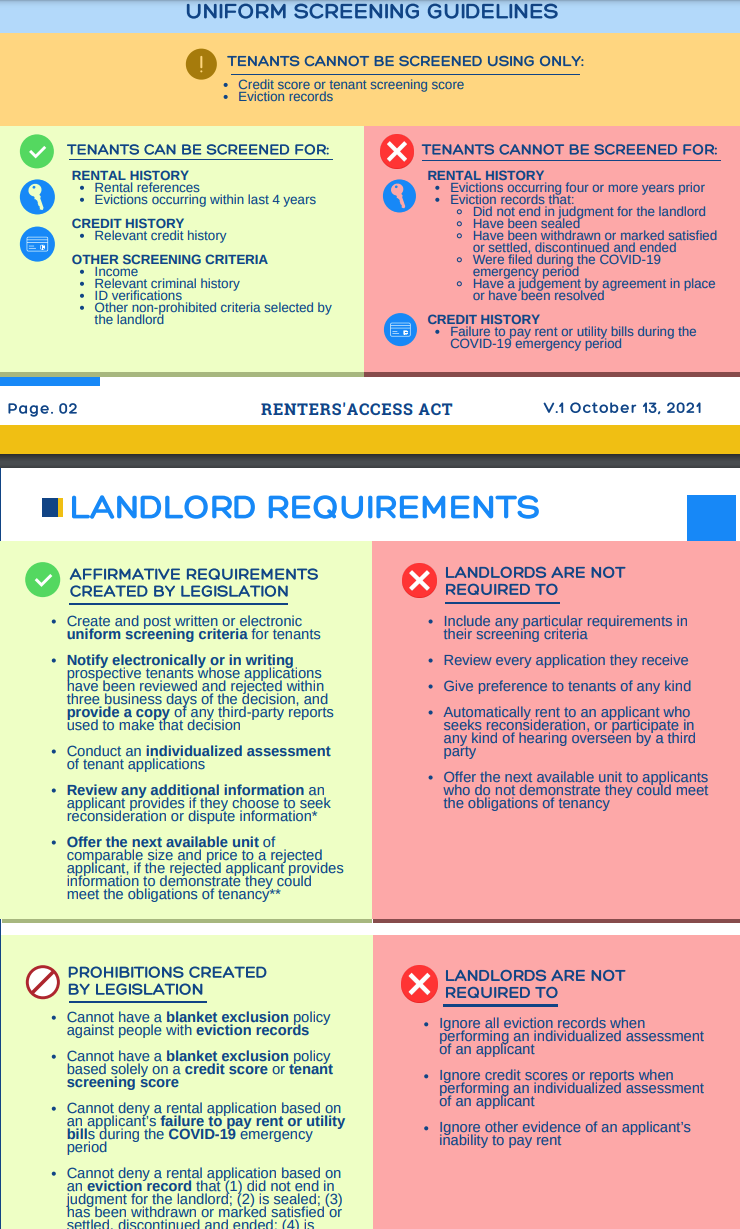
Transparency laws on rental decisions
The Renter’s Access Act is a recent Philadelphia law that sets uniform guidelines about how potential landlords can screen tenant applicants, including how past evictions would affect this decision.

The Renter’s Access Act is a recent Philadelphia law that sets uniform guidelines about how potential landlords can screen tenant applicants, including how past evictions would affect this decision.
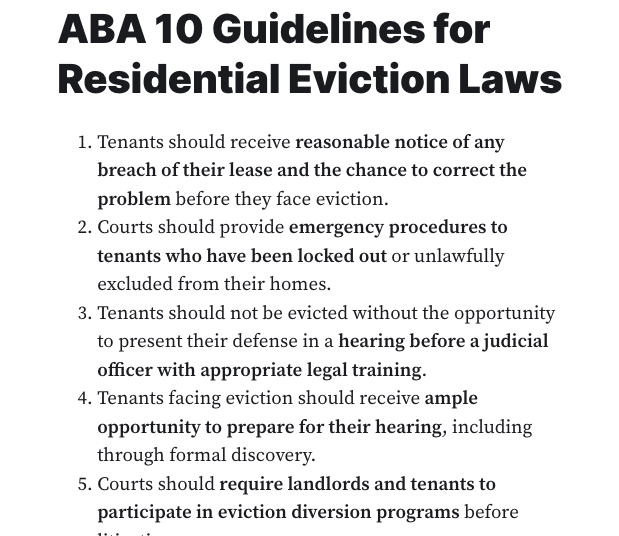
The American Bar Association has put out 10 Guidelines for Eviction Law, to guide local leaders in how to establish legal protections, due process, and diversion programs.
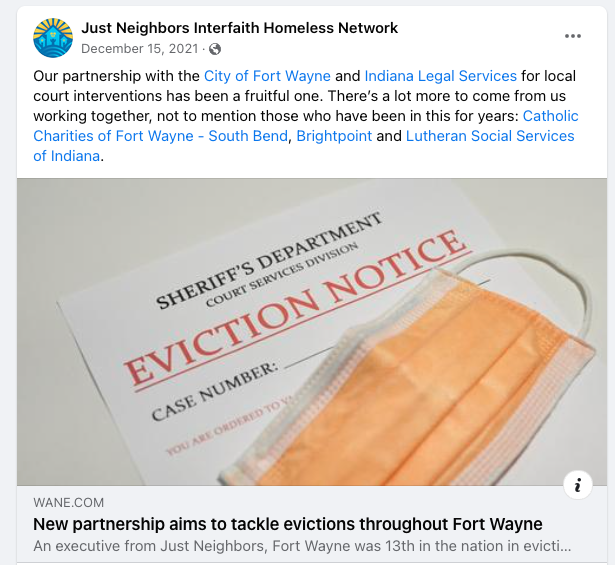
A unique partnership in the Indiana town of Fort Wayne has created an in-court eviction prevention service to reach more tenants and landlords before they go to trial, with services and guidance that can help them come to a resolution and get financial help without going to court.

Courts, legal aid groups, and diversion programs are using text messages to send reminders, referrals, and encouragement to tenants to participate in court and avoid eviction
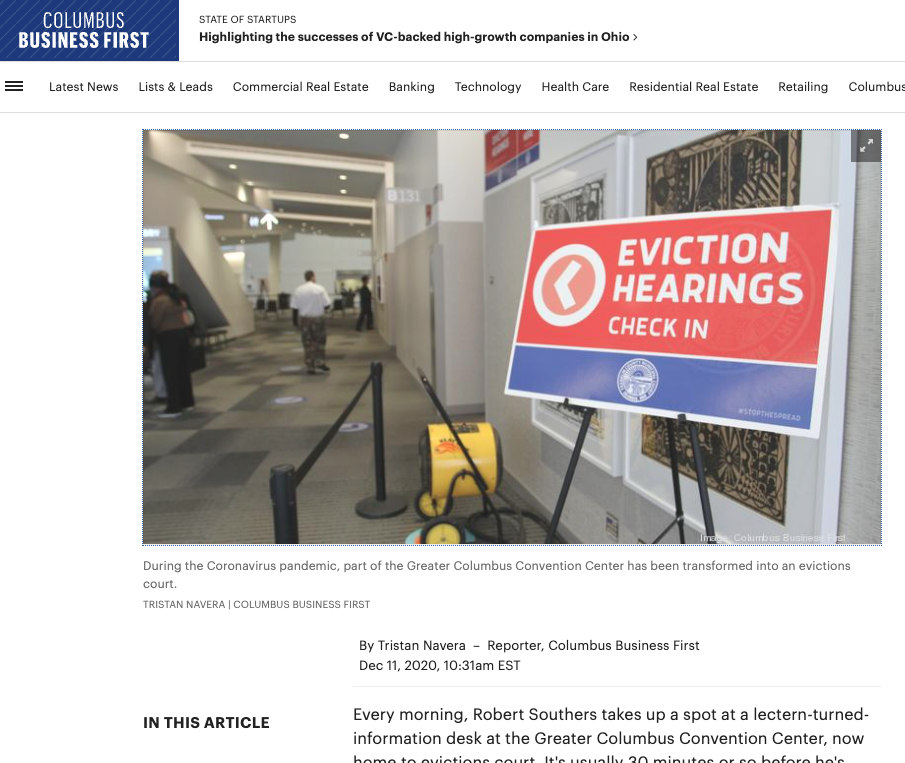
Social worker navigators are a new way to connect tenants and landlords with important assistance to resolve their problems when they visit court. They can also help court leaders make smarter referrals to get to better outcomes.
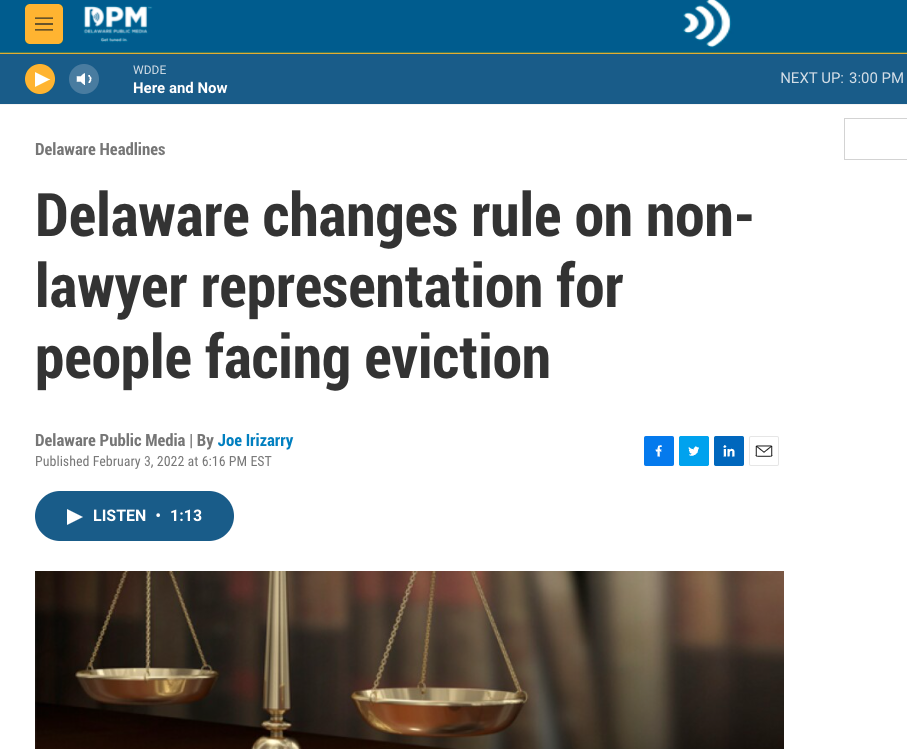
The Delaware Supreme Court established a new policy that allows non-lawyers — in this case, approved Qualified Tenant Advocates — to represent tenants in eviction court. This is…
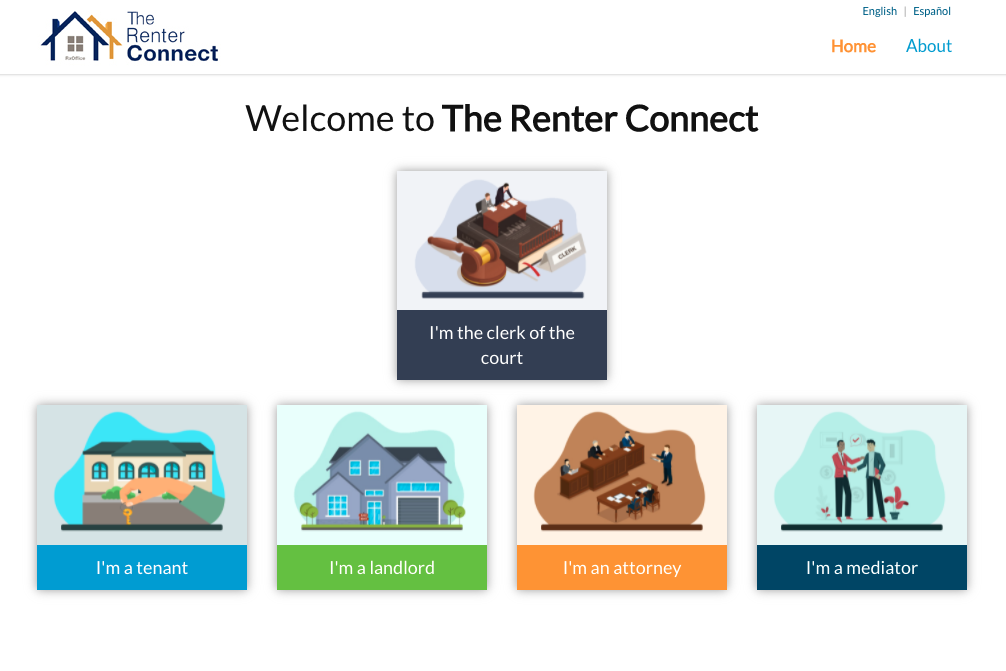
The Nevada State Bar has established an Eviction Mediation Program to get more free mediators available to landlords and tenants who are facing problems. The program provides extensive training, resources, and support to volunteers working to resolve people’s cases.
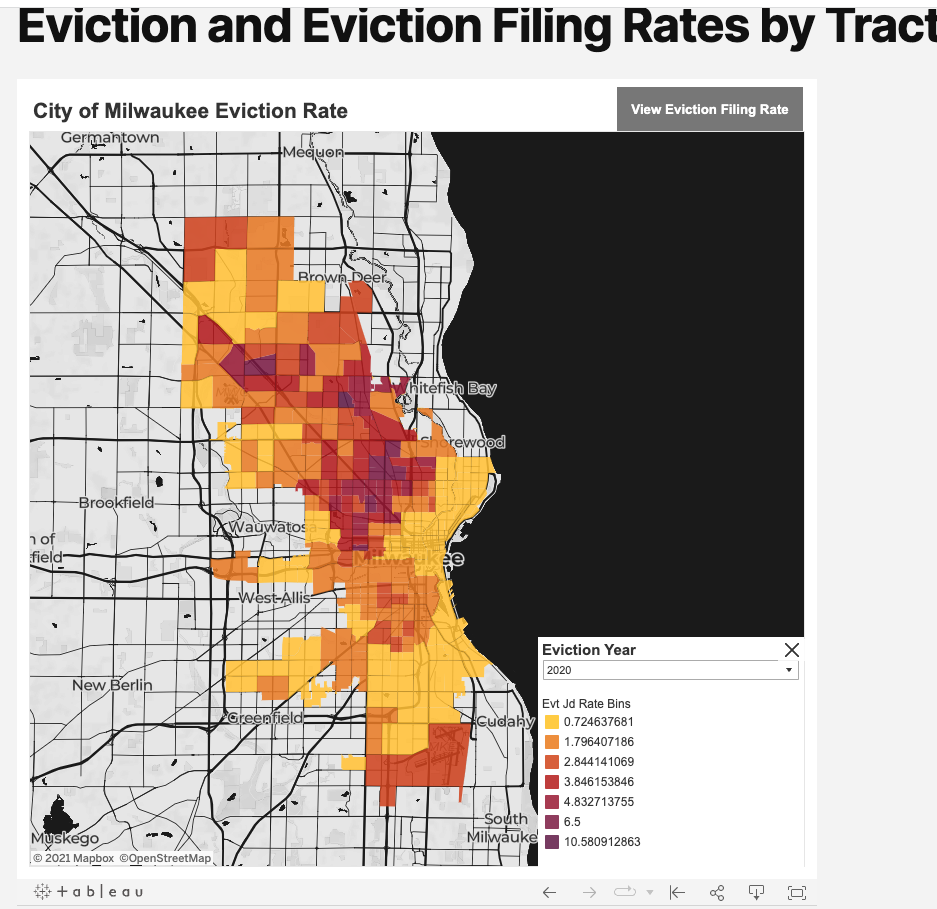
The Track Milwaukee Evictions website has gathered data about local eviction filings, court outcomes, neighborhood risk, and housing code violations. They present the data fields & visualizations to show how the eviction system works locally — and who is most at risk.
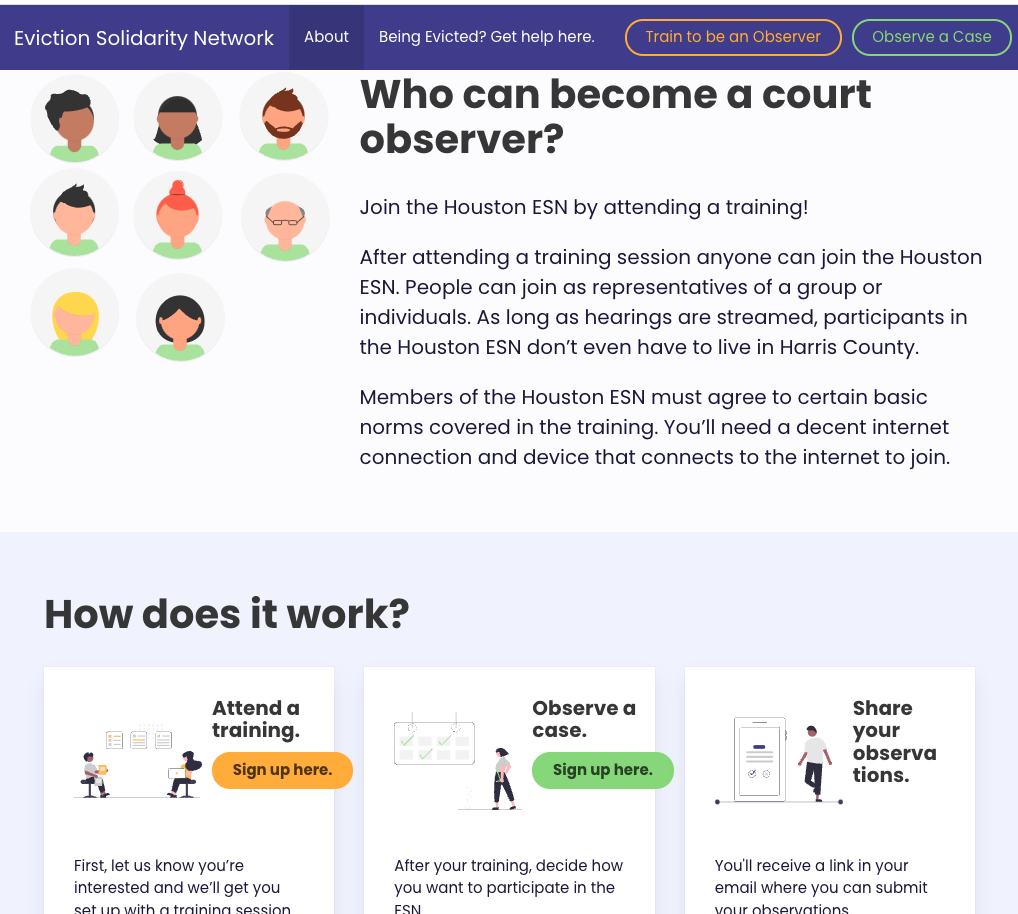
Texas groups have set up an eviction Court Watch program, to track how eviction laws are actually being carried out on the ground.
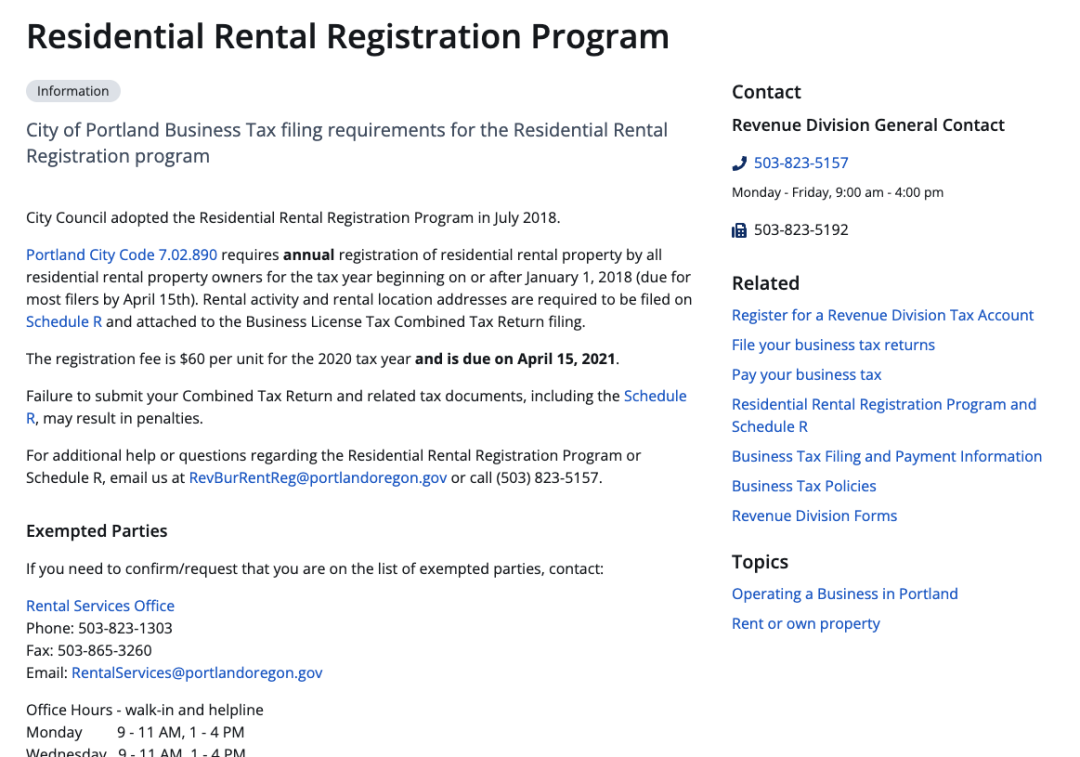
The city of Portland, Oregon has a rental registry that tracks where rental homes are, that collects $60 fees from landlords, and that maps out strategic data to improve government services and legal protections.